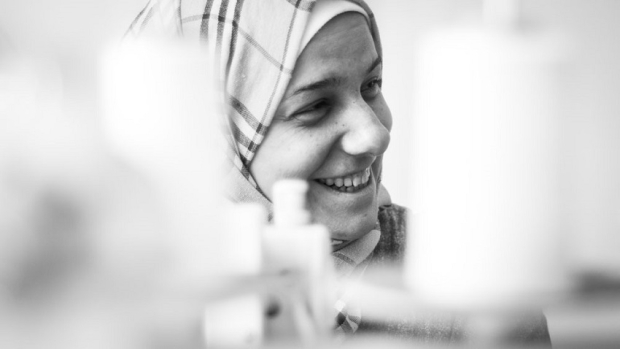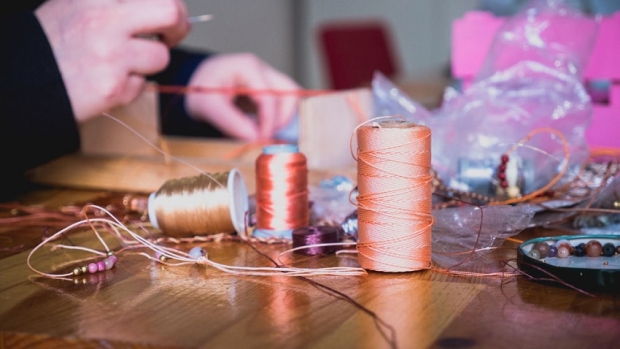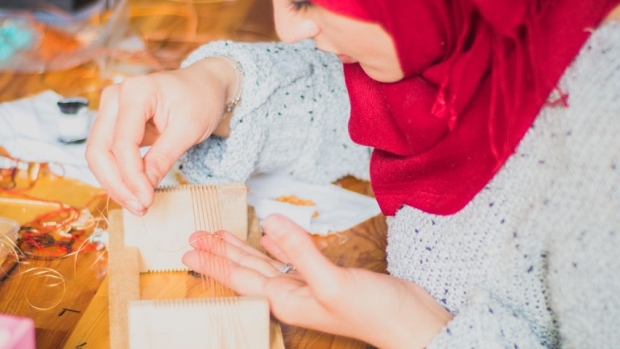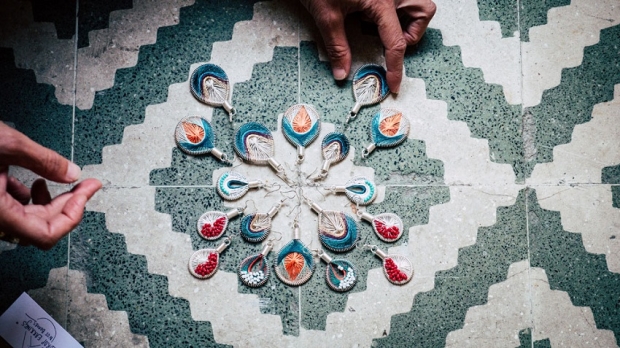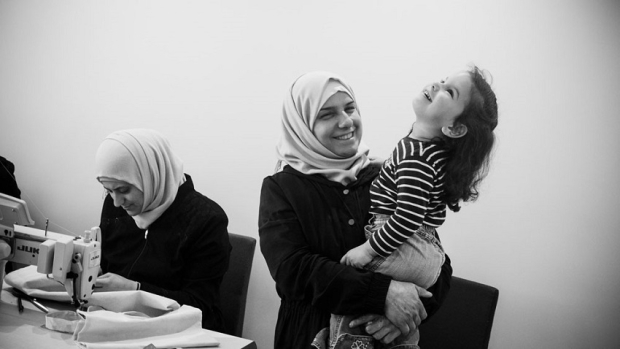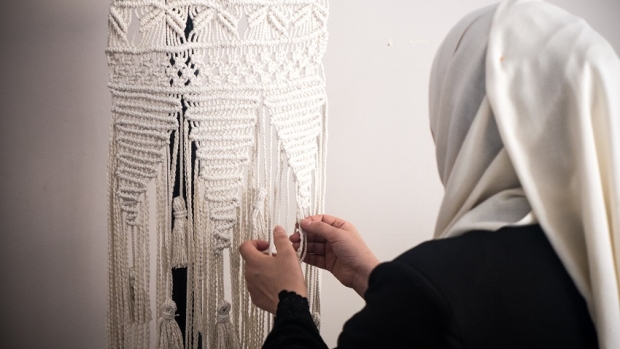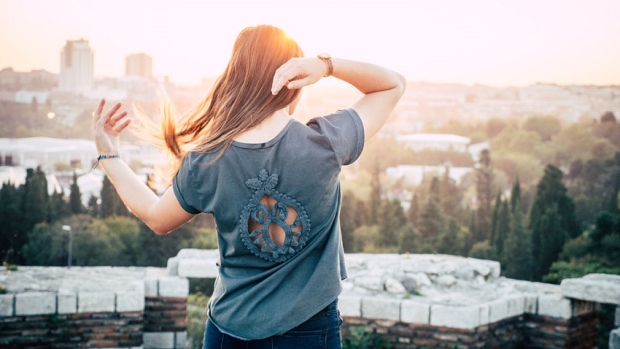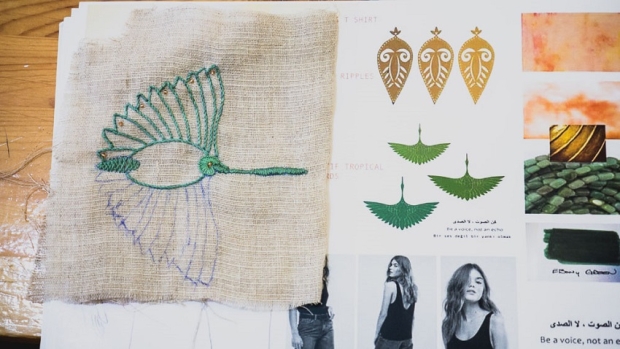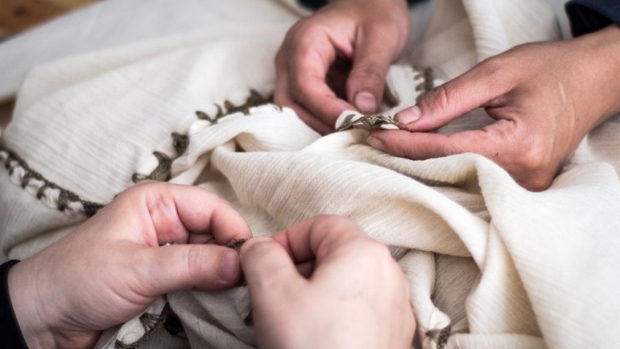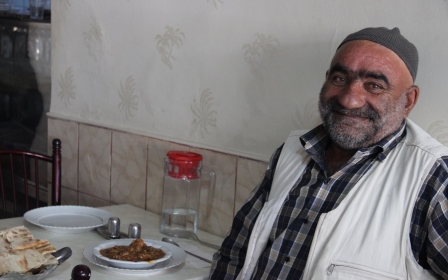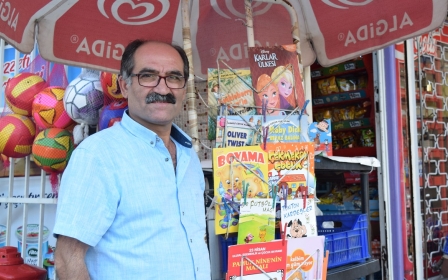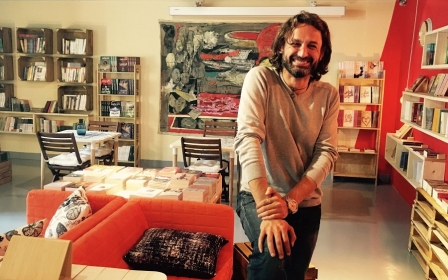Needles and thread: Syrian refugees stitch their way to a better life in Istanbul
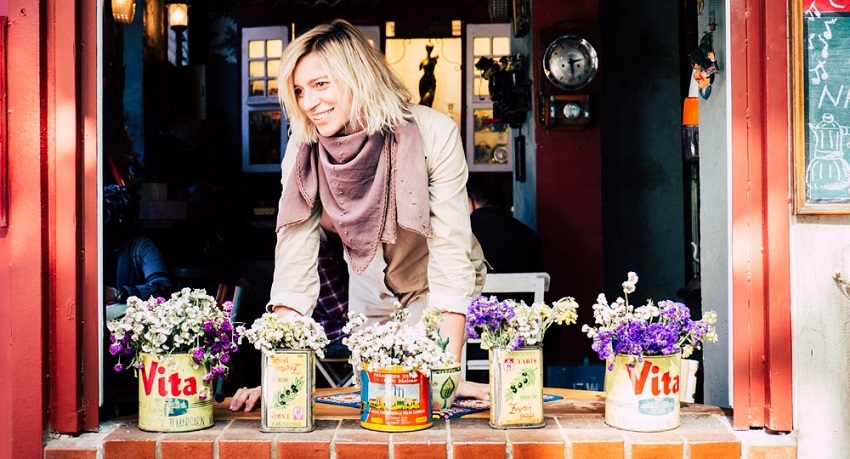
ISTANBUL, Turkey - In a basement of a community centre nestled in Istanbul’s Fatih district, around two dozen women are busy at work with scissors, thread and needles in hand.
They are racing against time to produce earrings, shirts, scarves, tote bags, and other home items and accessories before the launch of a website that will showcase their latest productions.
"It feels like we are all working for two families, one inside and one outside of our homes. We are able to meet people from other communities and we can learn from each other," says Lodi, a Syrian designer supporting her parents and two younger siblings with her work. "In coordinating the group, first I have to feel love for every woman and understand her."
The Fatih district of Turkey’s most populous city is now home for a growing community of Syrian refugees. Filled with shops and restaurants where Arabic scripts and sounds have become the daily norm, today this neighbourhood is the meeting point for many refugees wishing to start their lives over again.
Muhra
SPI’s most recent entrepreneurial project focuses on mothers displaced by war, putting all of their efforts into the well-being of families living in exile.
Before, I never imagined I could make something creative with my hands
- Rose, Syrian designer
The centre recently launched a new fashion brand with handmade products made mainly by refugee mothers that will be available online later this year.
“Within SPI we have a registered Turkish social enterprise through which we develop the skills, products and social cohesion of over 50 women from Syria, Iraq and Egypt,” explains Shannon Kay, SPI's co-director.
The stress of displacement means that these women now need to generate income to contribute to the household or even to support the entire home
- Shannon Kay, SPI's co-director
After their first exhibition abroad in November 2017 at Bazaar Berlin in Germany, showcasing last year’s collection, the positive feedback motivated SPI to create Muhra and a new collection with spring colours and tactile finishes, providing these hard-working women with a second opportunity to share their work and expand their designs beyond just earrings.
“Muhra means 'foal' in Arabic and our motto is 'together, boundless'. This word in Arabic represents the fresh energy of a new beginning, starting strong and moving with positivity. It represents our roots, as the word ends in the Arabic letter for femininity,” Kay, an Australian national, explains to Middle East Eye.
A hard-working member of the Muhra team, Shayma is a self-taught creator of macramé (a 1970s knotting technique with rope or twine) items such as handbags, hanging baskets, bracelets and other creations. Her latest masterpieces include wall hangings, plant hangers, and a beach bag design that is part of Muhra’s summer collection.
“A small group of women sat in a circle, making macramé bracelets with and for each other,” remembers Kay.
“We focus on women because of the situation of the mothers in our community here. We started as a community centre where mothers would come and bring their children. The stress of displacement means that these women now need to generate income to contribute to the household or even to support the entire home,” she adds.
'By women, for women'
Muhra's model is "by women, for women". They invite locals into their workshop, which fosters mutual understanding and allows refugees and locals to meet.
We started as a community centre where mothers would come and bring their children
- Shannon Kay, SPI's co-director
Registering as a Turkish social enterprise was a crucial step in enabling Muhra to secure the highest benefits for their workers. In a country where many Syrian refugees are working illegally and where even children have to work so that they can survive - although Turkey bans children under 15 from working - registering SPI as a Turkish social enterprise had its challenges. Around 3.5 million Syrian refugees have fled to Turkey to escape the civil war that broke out in 2011. Approximately half of them are under the age of 18.
Because SPI strives to provide tax registration numbers for all of the women participants - still an ongoing process - in order to be fully entitled by Turkish Law to secure legal work permits and remuneration, Kay says they “face challenges in racist attitudes of individual workers inside the Turkish bureaucratic system”.
The website will soon allow Muhra to engage with customers from around the world and allow these women entrepreneurs the ability to reach their collective goal of financial stability. Prices of their products range from 70TL-180TL ($15-$40).
Homeland roots
The clothes and accessories are inspired by themes of nature, tradition and storytelling. Most of their designs are in fact replicas of print patterns and natural landscape colours of Turkey and Syria, such as the Loz product line of earrings, made from brass frames, plated with gold or silver and layered with Turkish cotton mercerised thread.
[We] face challenges in racist attitudes of individual workers inside the Turkish bureaucratic system
- Shannon Kay, SPI's co-director
For this reason, they chose the name bedaia jadida - meaning new beginning in Arabic - for this jewellery range. The Zahra range of accessories is also inspired by the women’s collective heritage. From the Arabic name for rose, their handmade tablet cases put together Turkish woven cloth and hand-dyed organic cotton, simple but traditional materials from the region that create durable and original accessories.
"We need to use much energy and time and focus to finish each pair. It’s all by hand, our eyes, our concentration,” says Zeynep, a 35-year-old Syrian refugee woman who has been part of the project since the beginning.
“We have to communicate a lot with each other to do the work, to make sure we know exactly what the order is and how we can achieve excellent quality. We must love each other in this, to be producing good quality work," Rose adds.
New MEE newsletter: Jerusalem Dispatch
Sign up to get the latest insights and analysis on Israel-Palestine, alongside Turkey Unpacked and other MEE newsletters
Middle East Eye delivers independent and unrivalled coverage and analysis of the Middle East, North Africa and beyond. To learn more about republishing this content and the associated fees, please fill out this form. More about MEE can be found here.


